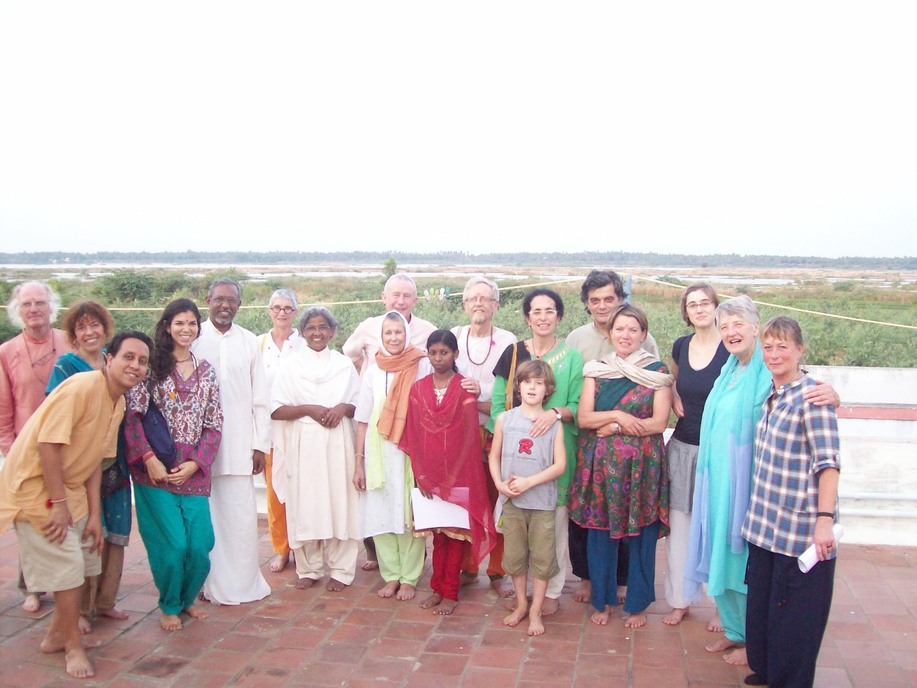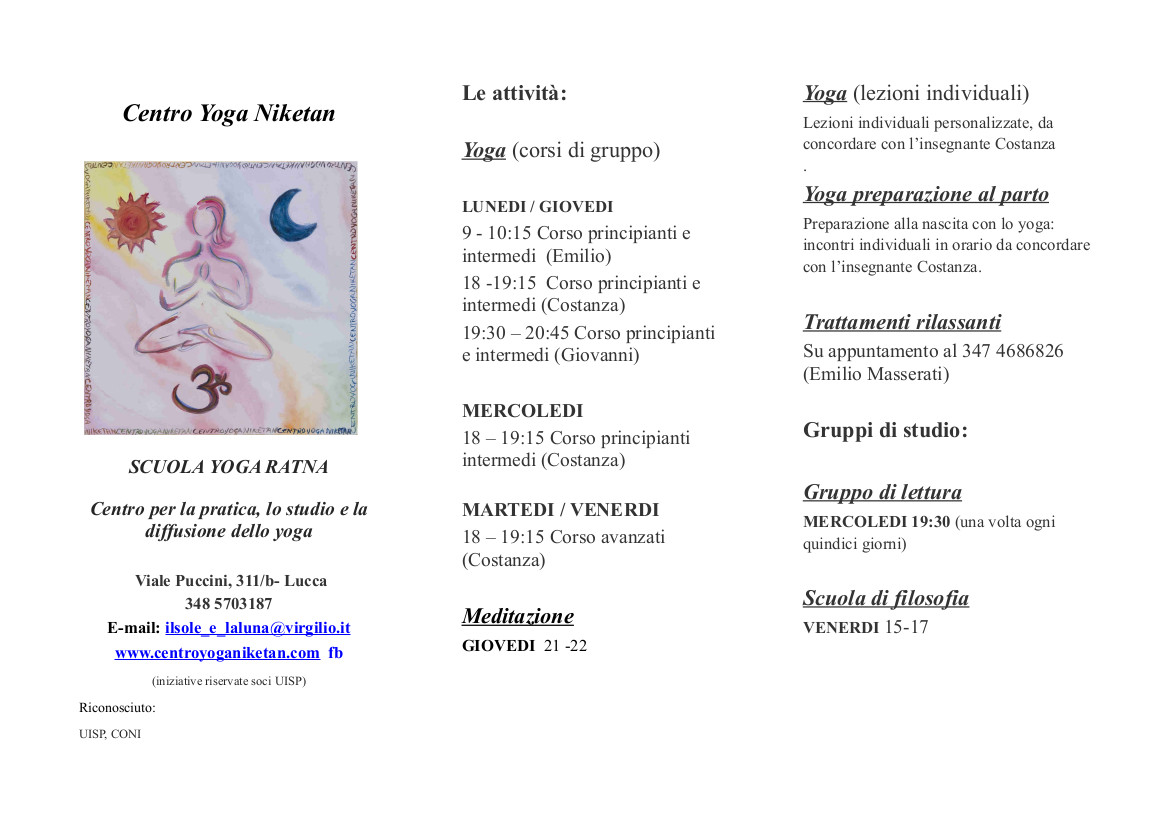
Foto: Ashram Shantivanam, Tamil Nadu Dicembre 2012
After John the Baptist was arrested Jesus came into Galilee, preaching the good news from God and saying: ‘the time is fulfilled, the kingdom of God is at hand, repent and believe in the good news (Mk.1.14-15). In the gospel of Mathew we have a short version that says, ‘repent, for the kingdom of heaven is at hand (Mt.3.2). Jesus came to proclaim the good news from God. He invited people to repent. In the gospel of Mathew, the word ‘repent’ comes first, as if the good news is the word ‘repent’. Good news is that which makes us happy as soon as we hear it. If it does not make us happy or makes us unhappy then it cannot be called good news but bad news. Hence our interpretation of the message of Christ should make us happy.
The Greek word for ‘repentance’ is metanoia. Metanoia in general means change of mind about someone or something. In general the English word ‘repentance’ is understood as change of one’s mind, change of one’s life, feeling sorry for sins, giving up one’s sinful life, reforming oneself, doing penance in order to receive God’s grace and so on. In the Christian tradition it is always understood negatively. In the Lenten season this word would be a constant refrain. Metanoia may include all these meanings but it seems to me that they do not really bring out the profound positive message that Jesus communicated through it. We cannot really understand the fuller meaning of this word ‘metanoia’ or ‘repent’ unless first we understand the meaning of the phrase: the kingdom of God is at hand.
There are many interpretations given to the expression ‘kingdom of God' such as political kingdom, the end of the world, the second coming of Jesus, the end of the present evil world, the thousand years rule of Christ (in the book of revelation), called millennialism, the heaven where people go after death, the Church, the kingdom of peace, justice and equality etc. But all these interpretations do not fit to express the good news of the kingdom of God. Jesus himself did not define the kingdom of God but described it in many ways through various parables. In order to understand the meaning the kingdom of God, we need to understand the spiritual evolution of Jesus because the kingdom of God is something which Jesus discovered in his life and to which he invited others to do the same.
The Spiritual Journey of Jesus:
There are many important moments in the life of Jesus. We can take four important moments that are significant in his life before his crucifixion, death and resurrection. The first moment was his birth as a human being through his physical mother, Mary. She conceived him, nourished him, protected him in her physical womb and then gave birth to him as a human being. In that sense Jesus was a hundred percent human being.
The second moment was the day of his circumcision. On the eighth day of his birth Jesus was circumcised according to the Jewish tradition. With this Jesus became a Jew. He was not only a human being but also a Jew. He entered into the collective consciousness of Judaism. He lived like a Jew. He worshipped God like a Jew, he ate like a Jew and he spoke like a Jew. In that sense he was a hundred percent Jew. As a Jew he might have said that Judaism was his way, his truth and his life.
As he grew in his spiritual tradition he began to discover its limitations. Discovering the limitations of one’s spiritual tradition is sign of maturity and growth. The first limitation was that his religion, at that time, divided human beings into two: the Jews and the Gentiles. So there was a wall between the Jews and the Gentiles. The second limitation was that God was understood only as the God of the Jews and not of the Gentiles. So there was again a wall between God and the Gentiles. The third limitation was that the external Law took the place of God and human beings were at the service of the Law, or religion. The fourth limitation was that God was a transcendent mystery inaccessible to human beings except through the mediation of the Prophets or the Commandments. The fifth limitation was that his religion created an exclusive collective consciousness thus becoming a source of enmity, conflict and violence.
This realization brought Jesus to the third important moment of his life which was his baptismal experience. The baptismal experience of Jesus was a moment in which he came out of the womb of Judaism and entered into the universal presence of God. It was his spiritual rebirth. First he came out of the physical womb of his physical mother, Mary, and now he came out of his religious womb, Judaism. In this experience all the five limitations mentioned previously are transcended. Firstly the wall between the Jews and the Gentiles was broken down and a new human being was born. It was the birth of a new human consciousness which was united with the whole of humanity and the whole of creation. This new human consciousness was neither a Jew nor a Gentile but the child of God or the Son of God1. St. Paul describes this experience very beautifully when he says:” for as many of you as were baptized into Christ have put on Christ. There is neither Jew or Greek, there is neither slave nor free, there is neither male nor female; for you are all one in Christ Jesus”.(Gal.3.27-28). In the letter to Colossians he says, “And you have put on the new man who is renewed in knowledge according to the image of Him who created him. Where there is neither Greek nor Jew, circumcised nor uncircumcised, barbarian, Scythian, neither slave nor free, but Christ is all in all.” (Col. 3.11). The experience of Jesus at his baptism was the birth of Universal Consciousness which embraced the whole of humanity and the whole of creation. Secondly as the wall between God and the Gentiles was also broken down, God became the God of the whole of humanity and of creation and not just the God of the Jews. Thirdly the wall between God and humanity broke down and God was not only a transcendent mystery but also an indwelling presence, Emmanuel. The Spirit of God descended upon Jesus and God lived in him and he lived in God. Jesus said, ‘I am in the Father and the Father is in me’ (Jn.14.11). Fourthly the external law is transcended and the inner law is discovered. God did not give to Jesus any external commandments but only said, ‘you are my beloved son’. Jesus also said: ‘I am the way, the truth and the life. No one can come to the Father but through me” (Jn. 14.6-7).
This statement has to be understood in the contest of the New Covenant that God promised to the Jewish people. God gave them Ten Commandments to regulate their lives. But their relationship with God was oscillating between faithfulness and unfaithfulness. It was a turbulent relationship. So God promised that he would make a New Covenant with the people in which he would write the Law in the hearts of the people so that everyone would follow the will of God without being told. (Cf.Jer.31.31-34). It is not really a New Covenant but we can call it ‘eternal covenant’ written in the heart of human beings when God creates them. In the first covenant God told people what they should and should not do but in the New Covenant God tells who human beings are. That self- knowledge becomes the way, the truth and the life and human beings have to live from this inner wisdom and no more from the external commandments. We can speak of a quantum leap in the divine-human relationship. Lastly the exclusive collective consciousness of Judaism is transcended and thus put to an end to enmity, conflict and violence and established peace. St. Paul in his letter to the Ephesians says: “but now in Christ Jesus you who were once far off have been brought near by the blood of Christ. For he himself is our peace, who has made both one and had broken down the middle wall of separation. Having abolished in his flesh the enmity, that is, the commandments contained in ordinances, so as to create in himself one new man from the two, thus making peace. And that he might reconcile them both to God in one body through the cross, thereby putting to death enmity. And he came and preached peace to you who are far off and to those who are near. For through him we both have access by one Spirit to the Father. (Ephe: 2.13-18).
The fourth important moment in the life of Jesus was when he grew one step further and realized that God and he were one. He declared: ‘the Father and I are one’. This was the last stage of his ascending journey to God. Jesus Christ, not only, entered into our original image and likeness of God but went beyond that and discovered that he was one with God. St. John says, ‘In the beginning was the word, the word was with God and the word was God’ (Jn.1.1.). At this level Jesus’ consciousness is one with God and the life he lives is the life of God. At this level God is the way, the truth and the life. We can say that Jesus grew from the individual identity to the collective identity, from the collective to the divine identity. This growth is also the growth in the love of God and the love of neighbor. It begins with the individual love of God and neighbor and grows into the divine love of God and neighbor. Jesus called his experience of God as the kingdom of God. Jesus invited everyone to discover this kingdom of God with the word ‘metanoia’. The English word ‘repent’ does not communicate the profound meaning of the word ‘metanoia’.
Metanoia is going beyond Nous:
The word ‘meta’ is a prefix. It means beyond or above or transcend. Per example we say physics and metaphysics. Physics is the knowledge of the things that we can see and observe even through a microscope; metaphysics is the knowledge of the things that go beyond the realm of physics. The verbal form ‘noia’ comes from the noun ‘nous’. So ‘metanoia’ means to go beyond nous. Nous is a word used in the platonic philosophy. In the Neo-Platonism, Plotinus divided realities in four levels2:
The first level is the One. It is the primeval Source of being and the Infinite, as opposed to the many and the finite. It is the source of all life, and therefore self- existent3 and the only real existence. Being beyond phenomenal existence, it is the most real reality, source of less real things. It is, moreover, the Good, insofar as all finite things have their purpose in it, and ought to flow back to it. From the theological point of view it represents God, as the source and the foundation of all.
The second level is Nous or Demiurge. The original Being initially emanates, or throws out, the Nous. Nous is a perfect image of the One and the archetype of all existing things. It is simultaneously being and thought idea and ideal world. As image, the nous corresponds perfectly to the One, but as derivative, it is entirely different. According to Plotinus the Nous is the highest sphere accessible to the human mind, while also being pure intellect itself. The Nous is the energy that manifests or organizes the material world in its appearance.
The third principle is the world soul. It is the image and product of the motionless Nous. According to Plotinus, it is immaterial like the Nous. Its relation to the Nous is the same as that of the Nous to the One. It stands between the Nous and the phenomenal world. It is permeated and illuminated by the former, but is also in contact with the latter. The Nous is indivisible; the world-soul may preserve its unity and remain in the Nous, but at the same time it has the power of uniting with the corporeal world and thus being disintegrated. It therefore occupies an intermediate position. As a single world-soul it belongs in essence and destination to the intelligible world; but it also embraces innumerable individual souls. These souls either allow themselves to be guided by the Nous or turn aside from the Nous and choose the phenomenal world and lose themselves in the realm of the senses and the finite.
The fourth principle is phenomenal world. The soul, as a moving essence, generates the corporeal or phenomenal world. This world ought to be so pervaded by the soul that its various parts should remain in perfect harmony. So long as Nous governs matter, or the soul governs the body, the world is fair and good. But if in the phenomenal world unity and harmony are replaced by strife or discord, the result is a conflict, an illusive existence. If the material word is not in harmony with the Nous then evil manifests. Evil here is understood as a parasite, having no-existence of its own, unavoidable outcome of the manifested Universe. Each level is the emanation from the One but in a limited way.
The word ‘metanoia’ from this aspect means to go beyond Nous. In order to discover our oneness with the One (God) we need to go beyond our identification with the body and the material world into the word soul, psyche, from there we need to go into Nous and from there to the One. In a direct sense, metanoia is ‘going beyond nous’ where we discover our oneness with the One. If our life is grounded in the One or God then there is harmony in our life and there is no evil.
When we compare this vision with the spiritual journey of Jesus in four stages we can say that Jesus went beyond his identification with his body (material body), beyond his identification with his collective consciousness (world soul), and beyond his identification with the universal consciousness (Nous) and then he realized his unity with God, the One. So we can say that the spiritual journey of Jesus was metanoia in his life. He went beyond Nous, beyond universal consciousness. At the moment of his baptism he went beyond collective consciousness and entered into Nous, the universal consciousness. It was a quantum jump in his spiritual evolution. From there later he entered into the One. We do not know when this really happened to him but we know only through his statement, ‘The Father and I and are one’. From this experience of Jesus we can now describe what the kingdom of God is and what repentance is. Through the word ‘repent’ Jesus is inviting everyone to go beyond Nous and discover oneness with God. In order to go beyond Nous first we need to enter Nous, only then can we go beyond Nous. The first stage of our spiritual evolution is to move from the collective consciousness into universal consciousness. Jesus described this experience in different ways.
Metanoia is to Enter into the Universal Presence of God:
The statement that ‘The kingdom of God is at hand' means that God is everywhere and everything and everyone is in God. God is also like the Sun radiating its light. This light is freely accessible and available to everyone. If we remain in the four walls of limited consciousness we do not experience the universal presence of God. In order to enter into the universal presence of God we need to repent, which is to come out of our four walls and enter into the universal presence of God. Hence metanoia is an invitation to realize this truth. It is to come out from the indirect experience of God to the direct experience of God.
Metanoia is to discover our true self or original self:
Jesus said that the kingdom of God is like a man who found treasure in the field, he went home sold everything and bought that field. The kingdom of God is like a merchant in search of pearls. When he found a pearl of great value he went home sold everything and bought that pearl. The treasure in the field and the precious pearl are our true self or original self. When we find our true self we give up our false self spontaneously. In this sense metanoia on one hand is discovering our true or original self and on the other giving up our false self or ignorant self or fallen self.
Metanoia is Rebirth: Jesus told Nicodemus that unless he was born again he could not enter into the kingdom of heaven. Nicodemus thought that Jesus was referring to the physical birth and he thought that it would be impossible for him as a grown up man to be born again. Nicodemus was in the collective womb of his Jewish religion. Jesus was inviting him ‘to repent’, which was to come out of his Jewish collective consciousness and enter into the universal consciousness, the kingdom of God, ‘ the wind blows where it wills and one does not know from where it comes and to where it goes’. It is to live in the universal presence of God. Hence rebirth is metanoia, it is repentance.
Metanoia is to Grow: Jesus said that ‘the kingdom of God is like a mustard seed. It is the smallest of all seeds but when it grows it becomes so big that the birds of the air will come and make their nests in it’. The seed has to grow into a tree. It means that then individual consciousness has to grow into the divine consciousness so that there is a place for everyone to build his/her nest or collective consciousness. Hence metanoia is to grow into the divine consciousness or unitary consciousness of God. Jesus’ spiritual tradition was stuck in the collective consciousness which divided humanity into two at that time-the Jews and the Gentiles. Jesus was inviting his tradition and also individuals to come out of their limited collective consciousness and enter into the unitary consciousness of the divine.
Metanoia is going beyond Ego, Desire and Time:
God is like an infinite ocean and we are all like small fish in the ocean. But we are not aware that we are in the ocean. We are searching for the ocean. We come across a big fish who knows where the ocean is. The big fish says, ‘you are already in the ocean, stop your search and realize that you are already in the ocean’. In this sense repentance is to stop searching, to stop all our movements and realize where we want to go we are already there. It also means to stop time, which is the movement of desire, ego and becoming. In the gospel of Mark Jesus says: the time is fulfilled. It means that the time has come to an end. The movement of desire and becoming has come to an end. This movement of time began when the first human beings initiated it with the desire to become like God. This movement is the source of all spiritual paths, religions and saviours. Now this time has come to an end because we realize where we want to go we are already there. In this sense the word ‘repent’ is good news. Metanoia is to go back into the Garden of Eden walk in the universal presence of God in the cool of the evening.
Metanoia is to go beyond Separation:
Jesus said that ‘the Father and I are one’. The kingdom of God is the realization of our oneness with God. It is returning to the source from which we all have come. Oneness with God is our ultimate state. Hence repentance is returning to our original source. Jesus also said, 'no one has ascended into heaven except the son of man who descended from heaven’. We all have descended from heaven (God) and we all need to return or ascend to God. When Jesus asked people to repent, he was inviting them to return to their original source. Metanoia is to realize our oneness with God.
Metanoia is going beyond the First Covenant or Old Covenant:
God gave Jewish people Ten Commandments in which God told them what they should do and should not do. But their relationship with God was oscillating between faithfulness and unfaithfulness. It was a turbulent relationship. God promised them that he would make a New Covenant with the people of Israel in which he would write the Law in the hearts of the people. In the New Covenant God will reveal who human beings are and that self- knowledge will be the way, the truth and the life. In the First Covenant human beings will say that the Law or Religion is the way the truth and the life but in the New Covenant human being who is the universal consciousness or Christ consciousness will say, ‘I am the way, the truth and the life’. Jesus had this experience at the moment of his baptism. Jesus inaugurated the new covenant at the moment of his baptism. God did not give him any commandments but told him, ‘you are my beloved son’. This is the essence of the New Covenant. The baptism experience of Jesus was his moment of metanoia. Hence metanoia is going beyond the First covenant and experiencing the New Covenant. It is transition from God outside to God inside, from the truth outside to the truth inside.
Metanoia is responding to eat at the Divine Table:
Jesus was inviting people to the good news of the kingdom of God. He used the analogy of land lord who was inviting people to the marriage banquet of his son but those who were invited did not respond to him. The kingdom of God is to eat at the table of the Lord. In this banquet God offers himself as food to the human beings and human beings offer themselves as food to God. God eats human beings and human beings eat God. God transforms human beings into divine and human beings become divine. It is the banquet of spiritual alchemy. In this meaning metanoia means offering oneself as a food to God or eating God in order to be transformed into God. We become what we eat. It is the process of divinization, theosis. Jesus said that ‘the kingdom of God is like a woman who took yeast and put in three measures of flour until it was leavened’. The yeast is the symbol of divine and the flour is the symbol of human. The human becomes divine and the divine becomes human. It is spiritual transformation. Metanoia is being transformed into the divine.
Metanoia is changing our Actions into Actions of God:
Jesus said that ‘the actions that I do are not my own but the Father who dwells in me does his works’. Metanoia is a process in which we completely empty ourselves of our ego and become a vehicle of God. God acts in and through us. Our life becomes life of God. God has created or manifested us to be his/her vehicles. When we forget our vocation then we make God to be our vehicle. Metanoia is turning around this state and becoming a vehicle of God.
Jesus summarized his teaching with one statement, ‘the kingdom of God is at hand, repent’. It is the good news. We cannot strictly define these words. The statement ‘the kingdom of God is at hand’ is a statement of fact. It is revealing the universal presence of God. It is an eternal truth: what was, what is and what will be. The word ‘repent’ or ‘metanoia’ is an invitation to discover this truth. It is an invitation to discover our deepest reality where God’s indwelling presence can be found. Metanoia is also good news. It is telling us that we are already in God but we are not aware of this truth. It is an invitation to realize this truth or to become aware of this truth. Just as the phrase ‘kingdom of God’ is pregnant with so many aspects so also the word ‘metanoia’ ‘going beyond nous’ or ‘repentance’ is loaded with so many aspects. We can never exhaust its meanings. We can go on describing it in many ways. We have to say that the translation of the word ‘metanoia’ into ‘repentance’ does not do justice to it. The general use of the word ‘repent’ to mean change of mind, change of one’s life, feeling sorry for one’s sins, doing penance and so on does not communicate the good news offered by the word ‘metanoia’. The meaning that the Christian tradition has given to this word is very superficial and does not do justice to the message of Christ. Has Christianity turned the good news of Jesus into bad news by being obsessed with sin and guilt? Christianity needs to ‘metanoia’. It is time now for Christianity to correct this wrong message and make the bad news into good news as intended by Jesus Christ.
1 These expressions are metaphorical and not metaphysical.
2 This section is taken from the internet.
3 Sat in Vedic Tradition.




